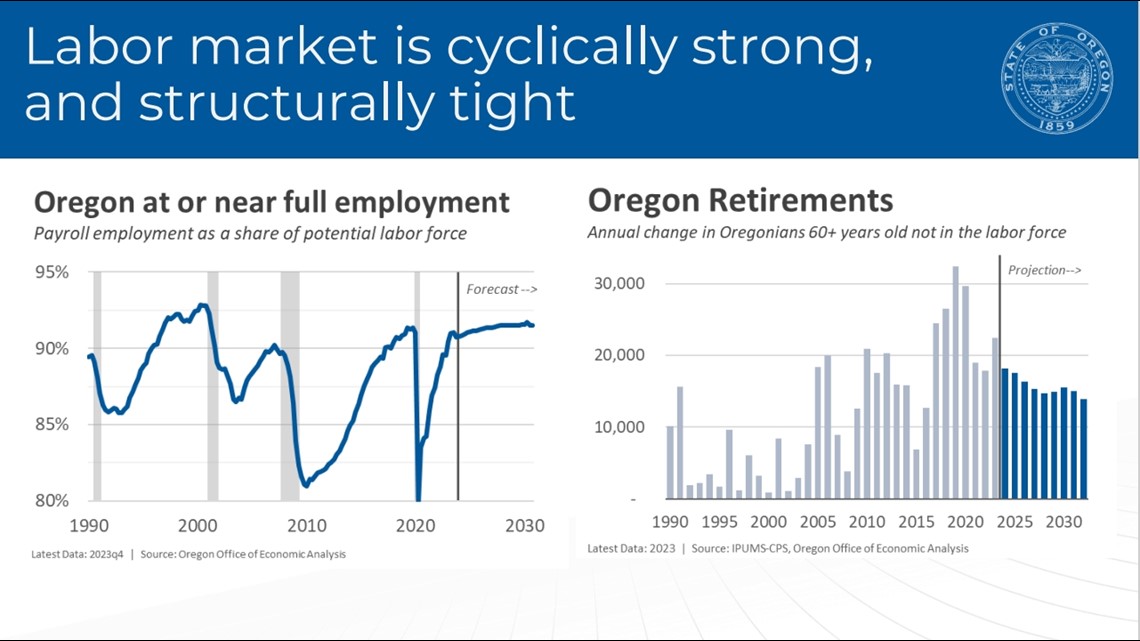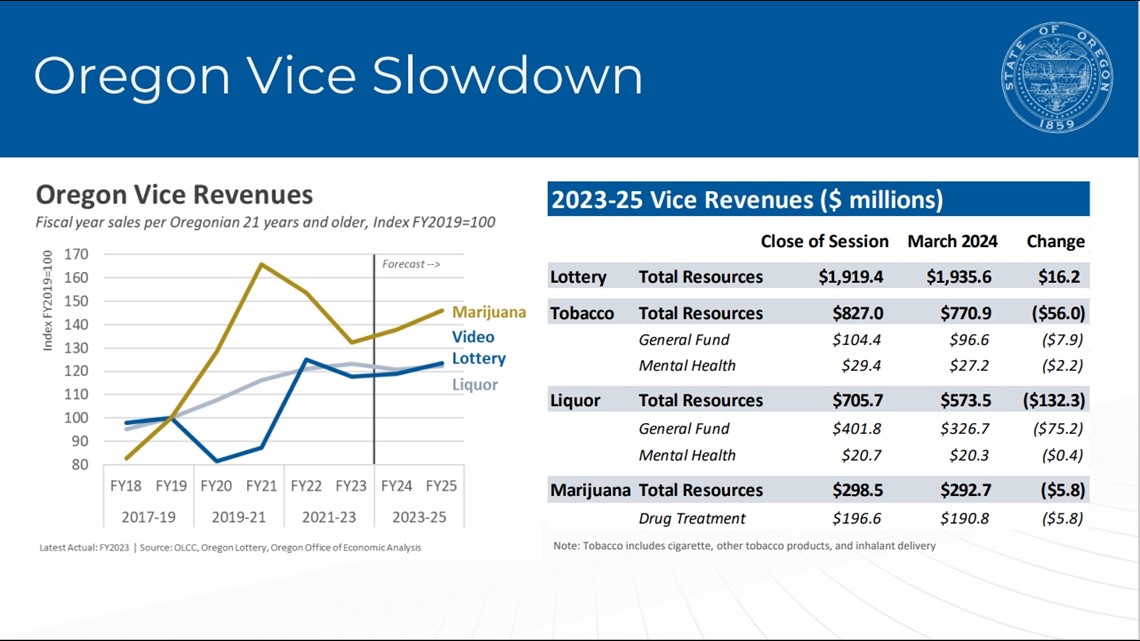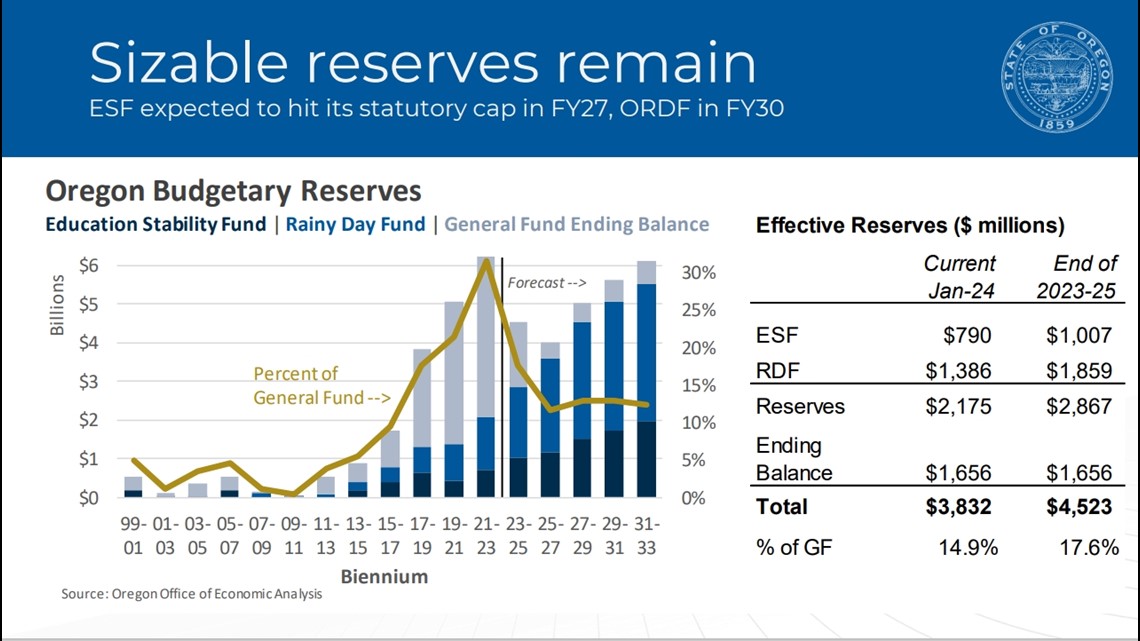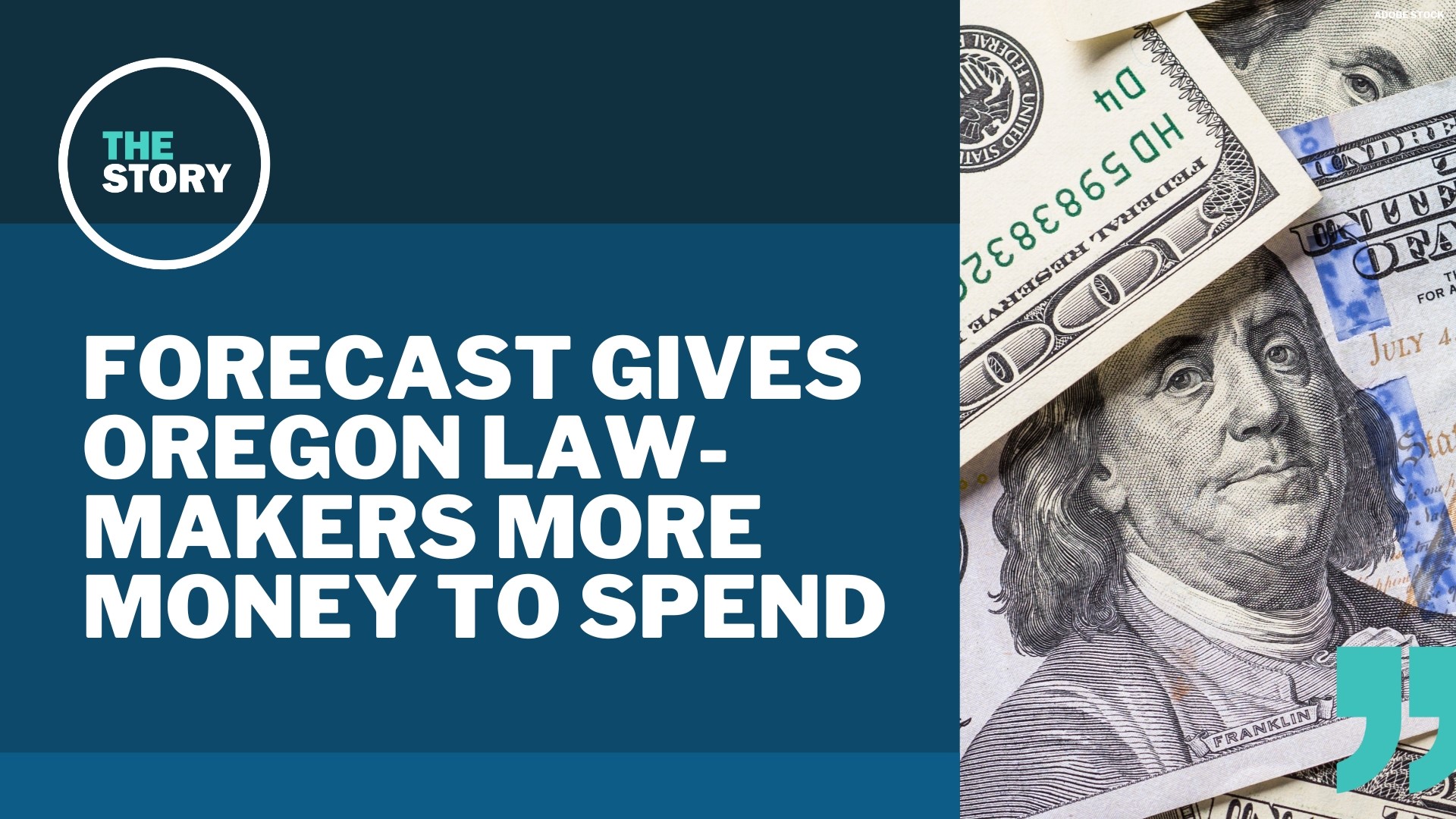SALEM, Ore. — Oregon lawmakers learned Wednesday morning that they will have more money to spend — that is, $558 million more — than previously expected during this current short session.
The money is a combination of $76 million more than expected in corporate income taxes, plus $482 million set aside from the last budget cycle that was moved into the current two-year budget instead of being spent. That's likely good news for lawmakers who want to spend more on housing, mental health and several other programs.
The update comes from the March Revenue Forecast from Oregon state economists Mark McCullen and Josh Layner in Salem.
In short: Oregon and the nation appear to be making a soft landing after the recent round of high inflation, and Oregon's economy is relatively stable, with the threat of a recession no longer looming.
But let's take a look at some key things noted in the report:
The need for workers in Oregon down the line
The report shows Oregon is nearing full employment, meaning the state appears to be almost out of workers — i.e. pretty much everyone who wants a job has one.
"The chart on the left is looking at that demographically adjusted, age adjusted employment rate — so, relative to what share of the population that historically you would think would have a job, or at least be in the labor force looking for a job, what share of them actually do have a job," Layner explained during a legislative briefing on Wednesday. "It's not the unemployment rate; it's the employment rate. And you can see we're basically near an all-time high."
The chart on the left is the one Layner was referencing. The one on the right shows the large number of baby boomers retiring.


The only time in recorded history where Oregon saw a higher percentage of its citizens on the job was back at the height of the tech boom in the late 1990s, Layner added, so the state is in an exceptionally strong labor market at the moment.
"The No. 1 reason businesses are having a hard time hiring workers or finding workers is because nearly everybody has a job already," he concluded.
The economists said that those two factors — most everybody working and baby boomers retiring — will continue to make it harder for companies to find workers in Oregon. McCullen and Layner also pointed out that there are more deaths than births in Oregon each year, so without people moving to the state, the long-term population trend is troubling.
We all have our vices — which pay for curbing those vices
Another interesting point: Most of the so-called "vice revenue" streams are expected to be lower than thought at the close of the last legislative session in June 2023.
The slide below shows that lottery will be up by about $16 million from the last estimate in June, but everything else will be down.


Economists now think tobacco sales will be down $56 million, which will mean $2 million less for mental health programs.
Liquor sales will be way down from a high point during the pandemic, with $132 million less than expected. That means $400,000 less for mental health programs, as well.
Marijuana sales are expected to be down about $6 million, meaning roughly $6 million less for drug treatment programs.
Show me the money
Finally, McCullen and Layner pointed out that Oregon currently has about $2.2 billion dollars socked away for a rainy day fund, and that by the end of the two-year budget cycle that runs until June 2025, Oregon will have roughly $2.9 billion saved.


Lawmakers react
Statements from lawmakers Wednesday morning focused more on the economic stability portion of the forecast than the specific revenue number, although there were renewed calls for legislation to address homelessness, affordable housing, public safety and the drug crisis.
"Oregon’s economy continues to stabilize. Now, we need to keep our economy moving in the right direction," Gov. Tina Kotek said in a statement. "It’s harder than ever for Oregonians to afford to live here, which is why we must take bold action on affordable housing. I look forward to working with legislators this session to make progress for Oregonians."
Senate President Rob Wagner and House Speaker Dan Rayfield issued statements echoing Kotek's call for legislation to tackle affordable housing, and also called for action on the drug crisis, with Rayfield asserting that the latest forecast "gives us the certainty and resources we need to invest in the priorities Oregonians care about most."
House Republican Leader Jeff Helfrich emphasized the lack of forecasted population growth for the state, calling it more unexpected than the revenue patterns.
"It's no surprise; people want to feel safe in their communities, don’t want to constantly deal with the effects of an unrestrained drug trade, and even if they could ignore all of that, our housing market is unaffordable for most," he said in a statement. "Oregon needs to reverse course, and fast.”

